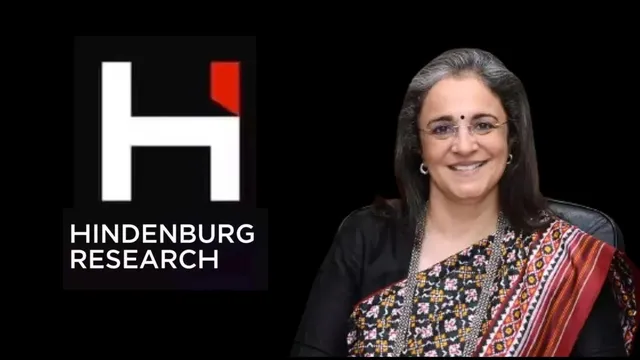On August 10th, just days before India celebrates its Independence Day, an unexpected attack shook the nation. This was not a traditional attack involving foreign terrorists, soldiers, or insurgents; instead, the assault came from an unexpected source far removed from India’s borders. The attacker was not a Pakistani terrorist, a Chinese PLA soldier in Galwan, or a Naxalite hiding in the jungles of Dantewada, but a financial entity thousands of miles away. This time, it was Hindenburg Research, a U.S.-based short-selling firm, aiming to disrupt India’s financial stability and employment landscape.
Despite the United States being considered a close ally of India—evidenced by the warm reception given to Prime Minister Narendra Modi, who addressed a Joint Session of Congress—Hindenburg Research, without hesitation, targeted India’s economy. This was not the first time. Previously, Hindenburg had zeroed in on Adani, one of the world’s richest individuals, accusing his enterprises of corporate fraud, leading to substantial financial losses. Although Adani managed to recover from the setback, the attack was devastating.
Now, Hindenburg has shifted its focus to Madhabi Puri Buch, the chief of the Securities and Exchange Board of India (SEBI), alleging that she has personal and financial ties to Adani and failed to conduct a proper investigation into his dealings. This report, released on a Saturday evening, triggered a nationwide response, not through an official investigation but through the stock market’s reaction. The notion was simple: if the stock market did not plummet, then Hindenburg’s report was likely false. This situation, however, raises questions about a possible international conspiracy to undermine India, as the frequency of such attacks seems to be increasing.
Hindenburg’s First Attack: The Adani Allegations
Hindenburg’s initial report targeted Adani when his enterprises were at their peak, making serious allegations of corporate fraud, including tax avoidance and artificial inflation of share prices. These accusations led to significant financial losses, with investors losing thousands of crores. However, Adani managed to bounce back, recovering from the setback within a year. Hindenburg’s allegations were not motivated by a desire for world peace or social justice; they were purely driven by profit. The modus operandi of Hindenburg Research involves identifying weaknesses in large companies, short-selling their stock, and then exposing these companies to the media. If the stock price falls, Hindenburg profits.
The Second Attack: Targeting SEBI’s Chief, Madhabi Puri Buch
This time, Hindenburg’s focus is on Madhabi Puri Buch, the chief of SEBI. They allege that Buch has personal and financial ties to Adani and that she deliberately did not investigate him thoroughly. The report was released on a Saturday evening, and the nation was quick to react, not with an investigation but through the stock market. The idea was simple: if the stock market doesn’t fall, Hindenburg’s report is false.
However, this reaction also points to a deeper issue—whether there is an orchestrated effort to destabilize India. In 2014, the world celebrated India’s rise, but in 2024, it appears that the world is eager to see India’s downfall. The question arises: Is there an international conspiracy aimed at creating an economic crisis and spreading chaos in the country?
Why is India a Target?
India’s rise on the global stage has not been without its challenges. Despite the nation’s progress, international reports and indices often paint a grim picture of India’s standing on various fronts. The Hunger Index places India close to Pakistan, while the Democracy Index, Press Freedom Index, Gender Gap Index, and Happiness Index all reflect poorly on the country. Additionally, India’s GDP per capita and Human Development Index (HDI) lag behind many nations, including some in Africa. These reports frequently provoke anger and are perceived as attacks on the nation. However, when the government itself presents concerning figures, such as rising food inflation and increasing debt, the reaction is often muted. The focus on GDP growth tends to overshadow these issues, despite the significant impact they have on the daily lives of citizens.
The Allegations Against Madhabi Puri Buch
Hindenburg’s allegations against Madhabi Puri Buch are serious. They claim that Buch and her husband, Dhaval Buch, invested in an offshore fund registered in Mauritius, which allegedly purchased Adani shares at inflated prices. This raises questions about conflict of interest, especially given Buch’s role as SEBI chief. The report also alleges that Buch transferred her controlling stake in a Singaporean consulting firm, Agora Partners, to her husband just two weeks before becoming SEBI chief. Hindenburg demands transparency, questioning the clients and financial dealings of Agora Partners.
The Role of SEBI and the Need for Transparency
SEBI’s primary duty is to protect investors’ interests and regulate the securities market. However, Hindenburg’s report suggests that SEBI has been more focused on protecting its chairperson and her husband than fulfilling its regulatory duties. This has led to widespread outrage, with calls for Buch to step down until a thorough investigation is completed. The Supreme Court had earlier ordered SEBI to investigate Adani’s dealings, but the investigation remains incomplete, leaving room for further scrutiny and speculation.
Possible Outcomes and the Need for Reform
The situation could lead to several outcomes:
- The Supreme Court may take over the investigation if SEBI fails to act, potentially uncovering more details about the Adani-Hindenburg-SEBI connection.
- Opposition parties may demand a Joint Parliamentary Committee (JPC) to investigate the matter, which could reveal more secrets about Adani.
- SEBI must become more transparent and proactive in its regulatory duties to restore investor confidence.
Conclusion
As India aspires to become the world’s third-largest economy, it must play by international rules and maintain transparency in its financial systems. The outrage over Hindenburg’s allegations should not overshadow the need for thorough investigations and accountability. If nothing wrong has been done, there is nothing to fear. However, hiding the truth will only drive investors away and hinder India’s growth. It is crucial to address these issues head-on and ensure that the country’s financial systems are robust and transparent.





